
So I’m fiddling with the change in my pocket during the cocktail hour at a wedding (I’m abominable at cocktail hours. No lie, the worst mingler you’ve ever seen), and lo! Who do I run into but old friend and Abrahamic soothsayer Jeremy Pryor! Jeremy’s not a guy that I see all the time, but he’s always got something interesting in the hopper and I knew we’d all profit from hearing from him. We join this mingle already in progress:
STEVE: …So the doctor says to the wife, “Rectum? It nearly KILLED him!” [Large forced laugh]
JEREMY: Why are you…? I already know you’re bad at small talk.
STEVE: Oh… ok then – well since I’ve got you cornered here, could I pick your brain on finances? Specifically, when did you start changing your mindset from a “normal churchgoer” to the kind of family builder you are now? You think of having a job and making money differently than most.
JEREMY: For me, probably the biggest divergence was when I started investigating Abraham.
STEVE: Abraham?! We love that dude~!
JEREMY: I know! He’s great! I think that a lot of Christians—when it comes to lifestyle or financial habits—are mostly influenced by the New Testament. I sure was. And there’s not much in there that repeats what’s taught in the Torah [the first five books of the Bible] about money. What we don’t widely appreciate is that the New Testament builds on the Torah; it doesn’t replace it. We’ve completely bypassed a lot of the Torah patterns, maybe in an effort to pull the Jewishness out of the Bible or maybe just because we’re trying our darndest to focus on Yeshua. Regardless, doing that cuts out masses of wisdom, including some financial insights.
STEVE: Do tell.
JEREMY: Well, for instance, long-term assets are critical for a father who sets out to build a multigenerational family. That’s probably one of the most basic ideas in the Bible that you see in Abraham’s life, Lot’s life, Isaac’s life, Jacob’s life, and Joseph’s life. Just consider: the way God set up the nation of Israel involved every single family having assets. There’s a proverb that says, “Prepare your field before you build your house.” And that’s a really unusual concept for a lot of believers. I think it means you need to establish your means of income before you establish where you consume it.
STEVE: Because, for the Bible-time Israelite, their field was where they made their living…
JEREMY: Exactly. Because that’s what going to outlast you and benefit your family after you’re worm food. They’re thinking of what’s going to feed your family long LONG term, building assets generationally. It seems obvious in the Torah that you need a field. And, you know, even Jesus, when he was talking in Mark 10 about the Kingdom, said, “You’ll have a hundred times more brothers and sisters and mothers and houses and fields in the life to come.” Modern Christians understand all of that except for the category of “fields”. Again, we don’t even know what that means anymore. We just think about a job to get us through the month; we don’t think about an asset that will be providing 100 years from now. I, for one, think this mindset is vital.

STEVE: I’m with you, but let me back up to something you already said: Your thoughts and practices about money came about not because of something you bought or a great job you had, but by… studying the Bible?
JEREMY: Yes.
STEVE: Well that is odd. And refreshing! Did you have any money at the time of this realization?
JEREMY: [Laughs] Uh, no. It all started when I was traveling to Israel, and I was fascinated by the fact that they’ve built a modern, 21st century culture that lives its life largely according to the way things are laid out in the Old Testament, all of which felt completely foreign to me. Now, I’m somebody who grew up in the church and who has studied the Old Testament as hard as I knew how. But in Israel, I had this intense realization that I had categorically ignored the lessons of the Old Testament about practical things because I had always seen a hundred percent of those things as descriptions of the culture at the time and, frankly, written them off as primitive ideas. When I encountered them in real life, though, not only were they not primitive, they were actually foundational ideas… And the doozy – stick with me here – is that we in the western church were suffering in the VERY areas where we had ignored these foundational truths! I felt that there are a lot of areas where we do know what we’re doing in the western church, but in these specific areas, we’re wandering and lost.
To get specific – the Torah is chock full of rules, descriptions, ideas and laws meant to guide our relationship with money. These principles, whether in the Torah or proverbs, are still very relevant to understanding how this basic part of life works. I didn’t understand how practical these things could be until, again, I saw them in front of me, in real life. So that’s where I started.
STEVE: OK so seeing the Bible kind of come alive verified and recommended the Abrahamic model to you. That is really cool–and I guess something people wouldn’t come across unless they lived in Israel a while. Now, was this before you had any sort of career going?
JEREMY: Yes. And I didn’t know what “career” was even going to mean for me. I mean, I was kind of raised in the vein of the church that saw money and business as evil in some way. Because that was my reference point, I’d decided that I definitely wanted to avoid all of that dirtiness. As far as I had heard, anyone who really wanted to make a big difference or really live as a disciple needed to do the same and eschew money altogether. That’s where I started.
And then I began encountering these ideas that had evidently been in my Bible all along. They seemed so holistic and so normal and so… godly! If the pinnacle of Biblical obedience was found in the clergy, why would God choose Abraham and not a priest as his prototype? Why isn’t the book of Genesis about Melchizedek instead of Abraham? …seems like God did this on purpose. And stepping outside of my hyper New Testament perspective on the world, of course that makes sense. What could be more normal than guidelines for raising a family, building a business, improving your assets, building a household and having kids? At first, I couldn’t make sense of it, but it was starting to sink in.
STEVE: I’ve got lots of questions coming to mind but let’s just follow your story a little bit. If you thought, “I think it’s possible for me to love God and yet not be in full time ministry”, then what was your career path? And what are you doing now?
JEREMY: Well let’s just say I had put all my eggs in that vocational ministry basket. I went to Bible college, then to a seminary. I had no other marketable skills but ministry skills. On top of that, I had two kids and we lived in a very expensive part of the North Shore of Boston. I realized, kind of very suddenly, that that I was on the wrong path, but I also knew that getting on a different path without God’s intervention was going to be virtually impossible. So I remember going to a park and just praying, “God I need you to rescue me and I don’t know how to provide for my family”. I prayed for a job, since that’s all I knew to ask for, hoping God would just give me something to work with. Some territory to expand, or at least a starting point.
At that moment, I didn’t have anything. I owned about half of a car. I was living in the parsonage – a church house provided for clergy – which was the only reason I could afford to be anywhere close to this ritzy neighborhood in the first place. Fortunately for them, the church I worked for had been wise enough to purchase this house before it got expensive. But this presented a unique problem for us: we knew that the minute I resigned from my job, we would become homeless.
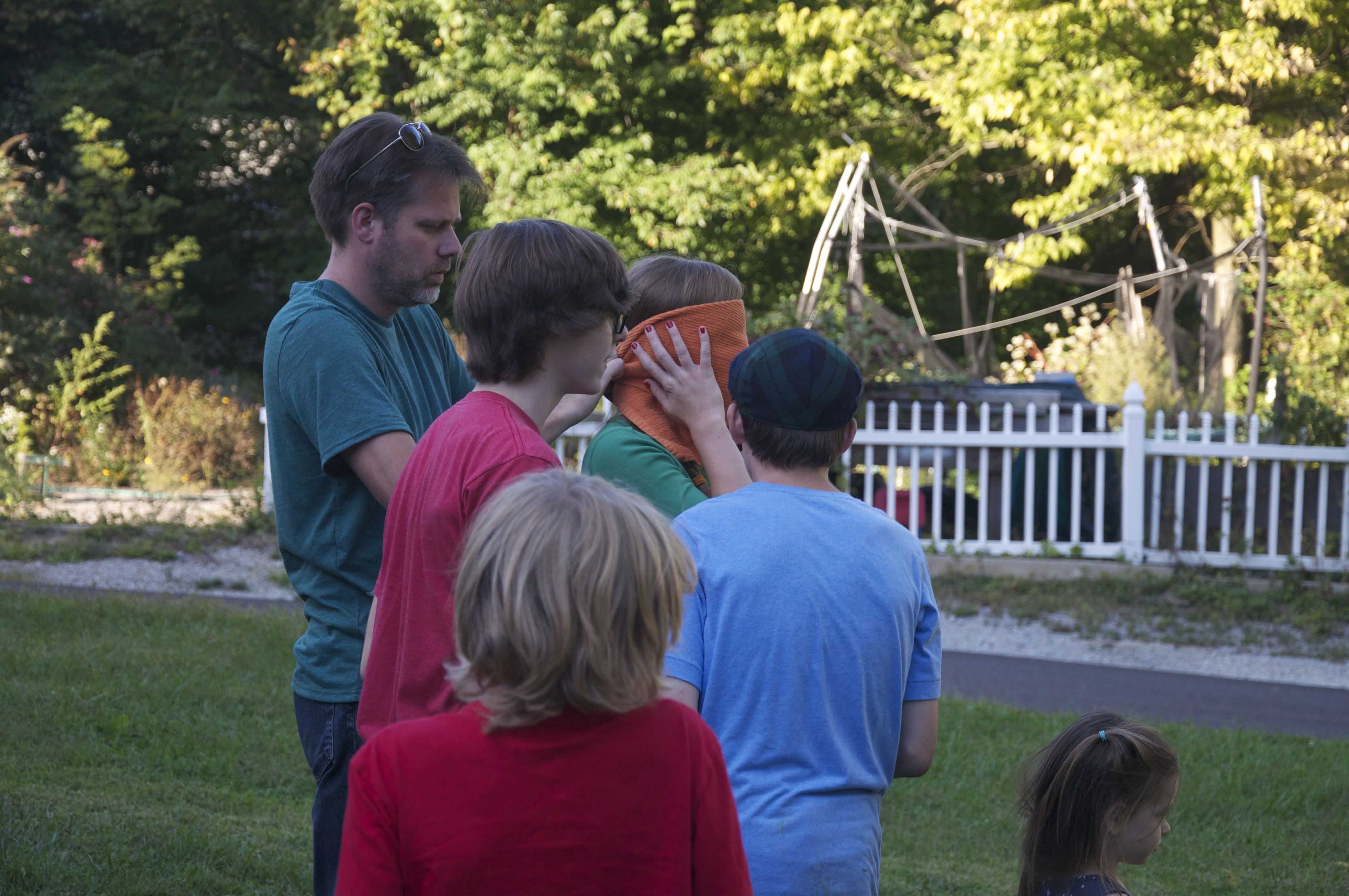
And so it was. Two days later I found myself having a restless night and reading The Two Towers (because that’s what I do when I’m stressed… I read Tolkien); I got to the part where Frodo and Sam were going through Shelob’s lair and I remembered a map I’d seen. (Somebody had read this very confusing chapter and drawn up a map that helped sort everything out.) At the time the internet was pretty new, so I jumped online and started trying to find this map for sale on eBay. I found it, but it was fifty dollars, which was an unfathomable fortune to me at the time. You see, the map was a part of board game that had since gone out of print.
STEVE: Jeremy, I’m trying to trust you here… is this train going to pull into the station soon? Are you going to wring meaning out of the depths of nerddom you’re now mining?
JEREMY: Yeah, the miracle is coming, stick with me. So this game, it was selling for TEN TIMES what it had originally cost. In my quest for that map, I stumbled upon someone selling a WAREHOUSE full of unopened copies of this game. And they wanted… a few bucks for the whole thing. It was worth a couple of hundred thousand dollars, Steve, so this was like finding gold in your backyard. In that moment I knew that God had our family right in that spot, and we were going to be just fine.
STEVE: And did you know how to find the nerds?! You could move the product?
JEREMY: Ha, yeah. For the Tolkien fans out there, you might know it – Middle Earth Roleplaying. It’s a great thing. But for me… well there is a verse in the Bible that says God puts gold, silver and precious stones in the ground for us to find. That’s exactly what he did for me–only it was Shelob’s map [chuckles]. What a good Father! And what followed is how this poor kid learned business – I didn’t know anything, but God handed me this treasure and said, “Here, this isn’t just money; it’s an asset. Go figure it out”.
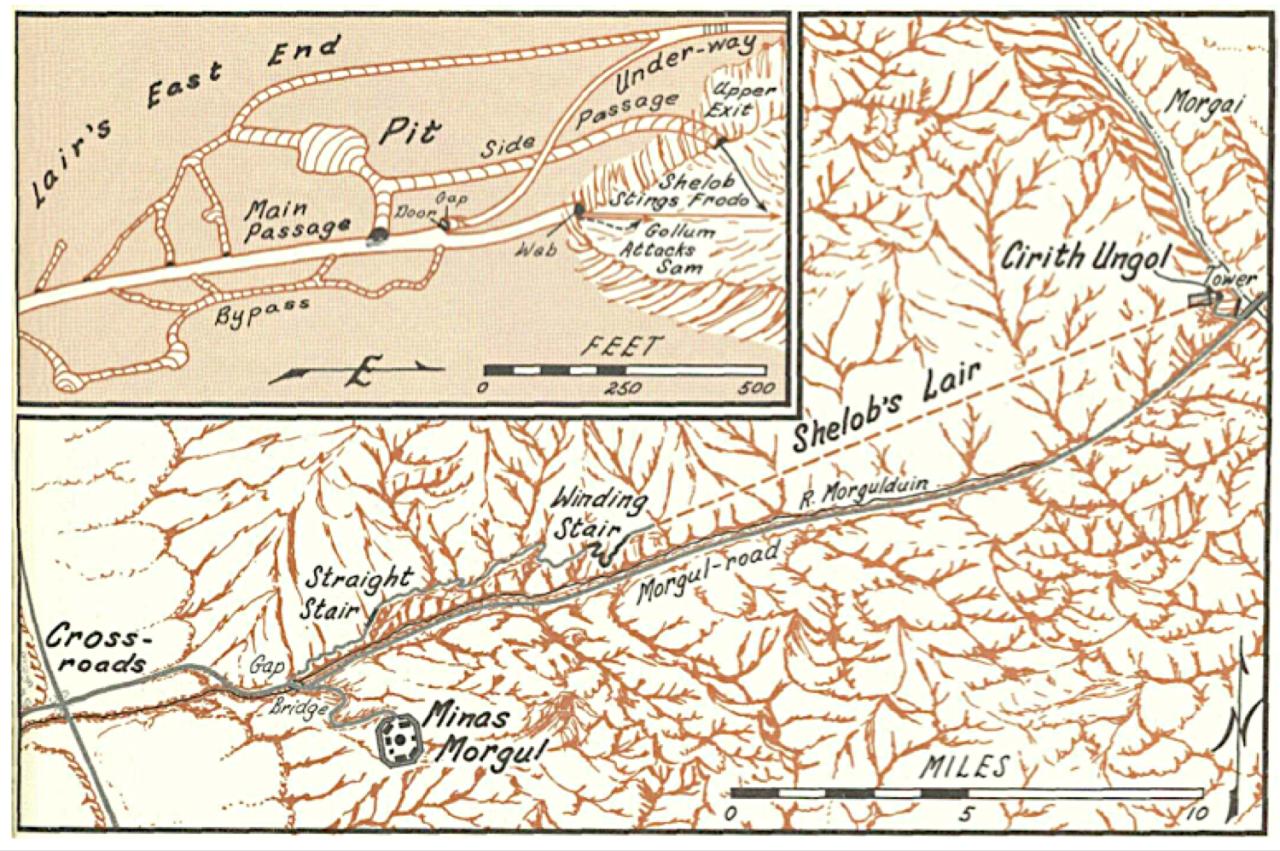
There you have it – Shelob’s lair.
I had to learn what a profit and loss statement did. I had to learn how to buy and sell. I built a customer service team and a website. It forced me to get a business degree in the school of hard knocks – and I made tons of mistakes. The great thing is that I could afford to make those mistakes because of the generosity that God had dumped onto me.
I spent the next few years hiring employees and building businesses, making mistakes and learning from them, reading books and coming into a completely different way of thinking about work and income. I didn’t REALLY have a ton of choice in the matter though: I mean, I had no other skills and was still not particularly employable.
STEVE: I know the feeling! I have a communications and music degree. MAYBE you could sell my liver on the black market.
JEREMY: Anyways, I know a lot of people go other routes, but I just didn’t have a resume and I couldn’t come up with a reason why anyone would hire me. As you can probably tell I didn’t have a ton of confidence in myself either. But God gave me this opportunity, so I started that business and eventually sold it to an investor so that I could start another business. We’re on the third business now, and each one has been a kind of learning and growing experience.
I’ll also tell you that the learning hasn’t been limited to business skills. Trying to build a family and run a company (or have a job), trying to be faithful ministers and disciple makers in the Kingdom – balancing all of that was hard. I felt like I needed a much deeper grounding in the Torah perspective, but I didn’t have any models for that.
STEVE: It’s funny that you invoked land so early in our conversation. Our common friend Justin Wolfenberg just talked to us recently about the value of land. What’s your interest in land, per se?
JEREMY: When I say “land”, I mean that as a kind of metaphor: I’m talking about the source of your income – the thing that you cultivate that actually feeds your family as opposed to where you live or what you consume. I consider my business to fall into this category of assets that I’m supposed to cultivate.
When I was in Jerusalem I was with a venture capitalist who was an Orthodox Jew, and he loved to talk about his land in the North of Israel. He was a very wealthy man, who owned both actual land and invested in many business ventures. He made the point over and over that if you don’t cultivate your land, God will eventually take it away from you, because his understanding of land was deeply rooted in CULTIVATION (NOT ownership). This guy, and most of the Jewish culture I’ve encountered, seems to understand that it’s not about how much you can squat on, but rather what you’re actively cultivating that’s producing value and increasing income.
For us, that’s how we think about our business. But I do think the same way about my little postage stamp lot in the city along the same lines. We have chickens, we have a huge garden and we spend time cultivating that land. We try to maximize all of the square inches inside and outside of our house. We want to be actively working to cultivate as a part of our lives as a family.

That’s how it all starts. Are you taking all the assets that are currently under your stewardship and maximizing them for the Kingdom? IF you do that well, you’ll get more. If you do that poorly, you will lose what little you have. That’s the principle from the parable of the talents. That principle is rooted in the Torah:
Every family was given a plot of multigenerational land to cultivate. And the year of jubilee was there so that no one would ever lose their land for good. Every generation will have a chance, even if the previous generation failed miserably, to cultivate the family land. This expectation that you’d be a cultivator was a normal part of life.
So… what are you cultivating? That can be made to look differently in our post-industrial age. But I do think that physical land should not be abstracted entirely – there is something real in the rootedness produced by physical land. You get too many steps removed from that and you start to think of it like the day trader who’s trading stocks at lightning speeds on servers and it becomes difficult to trace the money behind those stocks back to the real value behind the companies being bought and sold. So, I’m all for building an online business – it’s just that you need to make sure you make those very tight connections between what you’re cultivating and how you’re producing income. Am I giving God something to bless so that He can maximize and multiply my efforts? What is in my hands right now that I’m a steward of? Those are great questions to keep in mind.
STEVE: One question that I hear a lot is, “If Abraham and his family is supposed to be our reference point, what does Jesus mean when he says do not lay up for yourselves treasures on earth”?
JEREMY: A classic question; I’ve thought about that a lot… If you look at the whole picture of what Jesus is saying when he says, “Don’t lay up treasures on earth; don’t worry about your life”, it’s a statement about the basis of your trust. If you’re worried about your life or you’re worried about your clothes, what does that say about the center of your trust? And if you start to migrate the center of your trust into assets or money then you’re in a dangerous place for sure. But that’s true for anything! You can trust in work, the clothes in your closet… whatever. We get warned against trusting in those things too – explicitly. That doesn’t mean we’re not supposed to touch them.
In the same way, when the Bible says, “hate your father and mother”, Jesus isn’t saying, “Let me teach you about family: I want you to hate them all”. The basic principle is about the cost of discipleship and it shouldn’t be taken as a basis for family relationships, right? In the same vein, the statement, “Do not build up treasures on earth” is not about the importance of saving, it’s about the foundation of the trust of your life.
STEVE: Oo, that’s yum good truth potion. That makes a lot of sense. How about this: Do you think it’s possible for somebody to fall off the Biblical path using Abrahamic methods? You know, looking at things that we’re told to do in the proverbs and saying, “Hey! This produces wealth!”, then just starting to chase wealth and leave the interest of God in the dust?
JEREMY: Sure! More importantly, YHVH also thinks that’s possible. In fact, in the Torah, that’s the thing that God was most concerned about when he gave land to the Israelites. At the moment when He said, “I’m about to give you land”, he also said, “Be wary lest you say, ‘My own hand produced this’.” In other words, “I gave you land. I did it. You didn’t do this. In fact, I made the fields. Heck, I made everything, and so I own it all. Not you.” Now that you’ve heard my story, it’s pretty obvious that God gave me everything that I have, right? Thing is, that’s true for every single person. There’s no such thing as a self-made man – that’s a complete lie.
But even in my case, danger is lurking and the temptation to start to trust in all these good gifts is ever present. It really comes from that root of pride. I look at my hands and see what I’ve done, and I start to feel pretty special. Thankfully our Father knows us and made provision for this.

STEVE: Okay, I’ll bite: How, pray tell, does one keep building one’s assets, cultivating one’s land if you will, but not get ensnared by pride and greed and that nastiness that we know will take us out before we get to the Wicket Gate? (I’m reading Pilgrim’s Progress right now so forgive me.)
JEREMY: No sweat, you know I’m at home with the nerds! [Laughs] Okay, here’s my answer to that: At the same time God started giving my family assets to cultivate, we also started celebrating Sukkot, which is the Biblical festival where you’re supposed to spend a week every year remembering that you’re still on a journey and that you don’t own anything. It’s a journey of faith – a physical reenactment of the homelessness experienced by Israel in the wilderness. The point to this homelessness isn’t to be miserable (it’s actually fabulously fun; I’d say the most fun festival of our year); it’s to remember experientially that God provides everything. Your water, your manna, your house and even the shade above your head – everything is from the LORD. It’s an annual rhythm God ordains forever so that we’ll never forget who writes the checks.
STEVE: Oh man, we’re Sukkot advocates at my crib too… thanks to you! You guys introduced us to Sukkot and I’m sure we’re going to talk more about that in the future. Where does the idea of Sukkot come from in the Bible?
JEREMY: Well God said to Israel, “When you get to the promised land and you have these households you didn’t build in these fields that you didn’t create, you’re going to need some help to make sure that you remember Me, so I’m going to give you a very concrete way to do that”. This has been an extremely critical part of our journey. Every year we take that whole week to just sit underneath a temporary dwelling like God directed, and just say, “Everything that we have was paid for by the LORD and did not come from us”. God knew about our weak memory skills and He knew exactly how to help us rhythmically remember. And man I’ve got a lot to remember, all the way from being delivered out of a parsonage in a fancy part of town, through Shelob’s lair, all the way to where we are now. God is so good!
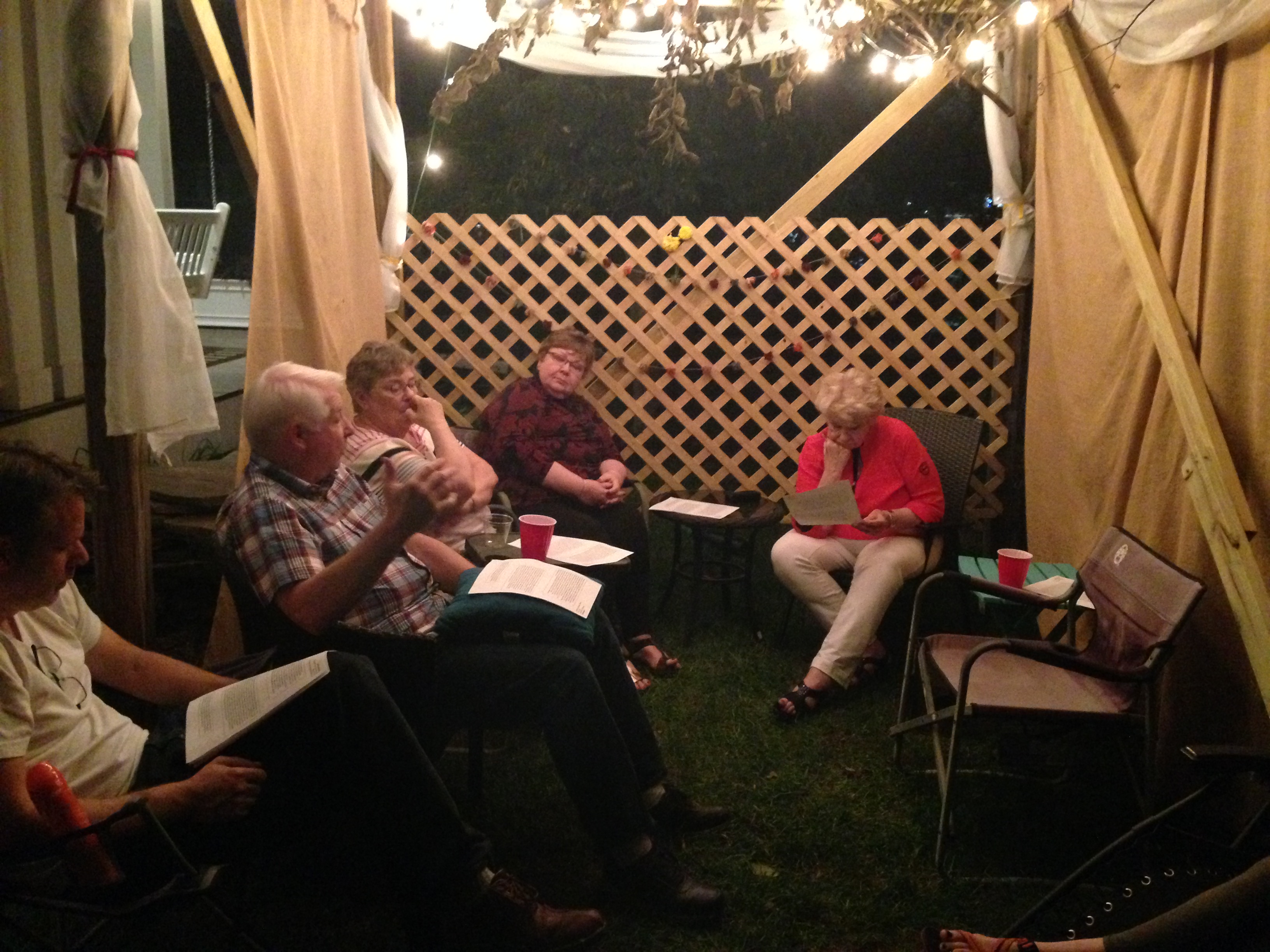
Teaching time in the Sukkah!
STEVE: He is; and all His ways are life. This is great, friend. Well, I want to eat some wedding cake and I know that you’d love to go play some bizarre, supernerd Middle Earth 12-sided dice game, so I’m going to release you to do that.
JEREMY: Oh finally. I think that’s what my wife was hoping for when she came to the wedding with me. Well, that and you interviewing me for 20 minutes.
STEVE: Well I’m appreciative to you both for the imposition. Thank you and until next time!


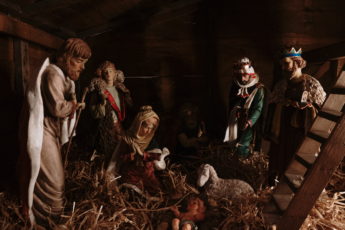



this is so so so so good. thank you so much. i have been studying this subject for so long. trying to get out of the rat race. such good stuff. i love this topic !
Good to have a perspective about where people are coming from, how they see themselves; God blesses and partners with imperfect individuals and families. That’s encouraging!